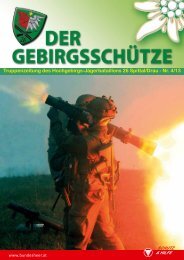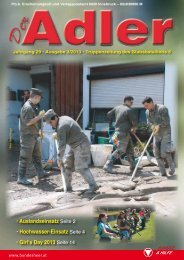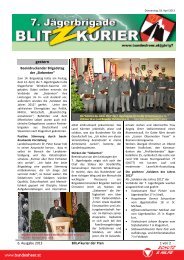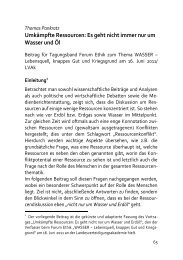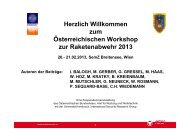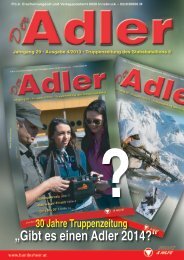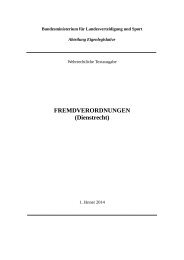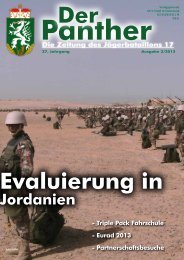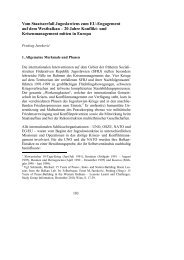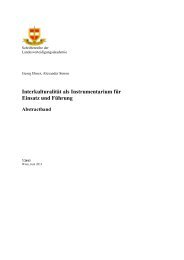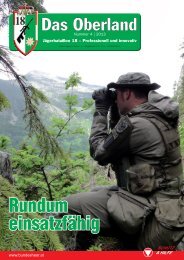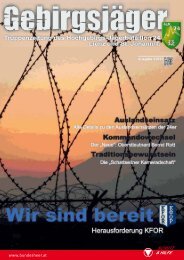Cooperation Between Organized Crime Groups Around The World
Cooperation Between Organized Crime Groups Around The World
Cooperation Between Organized Crime Groups Around The World
Create successful ePaper yourself
Turn your PDF publications into a flip-book with our unique Google optimized e-Paper software.
Operation Onig<br />
Operation Onig, which culminated in mid September 1994, dismantled an international<br />
narcotics smuggling group trading cocaine for heroin, and led to arrest warrants for 136<br />
individuals: 44 in New York, 26 in Catania and 66 in Reggio Calabria. Six of those under<br />
investigation by the Catania authorities were simultaneously being investigated by the District<br />
Attorney's office in South Manhattan, 13 of the Calabrians were also due to stand trial in the<br />
US. 38<br />
Operation Dinero<br />
This was an anti-money laundering investigation set up by the Drugs Enforcement<br />
Administration in Atlanta, Georgia to trace new drug and money laundering routes from<br />
Colombia through North America, Spain and Italy. It involved setting up a bogus bank on the<br />
British dependent territory of Anguilla which was not open to the general public but accepted<br />
transactions from ‘prestige’ customers only. Cocaine was being shipped from Cali in<br />
Colombia to the Spanish coast and on to Italy and northern Europe; cannabis was being<br />
trafficked from North Africa to Europe and arms were being smuggled to Croatia. <strong>The</strong><br />
operation led to more than 100 arrests in the USA, Spain and Italy, the seizure of 33m US$<br />
worth of assets, including paintings by Rubens and Picasso; of 9 tons of cocaine, several tons<br />
of cannabis and several boxes of automatic weapons. <strong>The</strong> European kingpin was an Italian<br />
businessman from Brescia called Pasquale Locatelli who owned 14 shipping and property<br />
companies in Cyprus, Gibraltar and Croatia, a bank in Zagreb and another in Apulia. Neither<br />
he nor his right hand man, a lawyer, was formally affiliated to any Mafia group.<br />
Conclusions<br />
<strong>The</strong> extent of international collaboration between organized crime groups around the world<br />
and the tendency towards strategic partnerships that has emerged in recent years can leave no<br />
doubt of the urgency of an equally international response, of that ‘common strategy which<br />
should be the inspirational goal for all the countermeasures to be taken’ so strongly urged by<br />
judge Giovanni Falcone. In the continent of Europe alone there are some forty nations, each<br />
with widely different legislation and judicial systems, law enforcement structures and<br />
capabilities. Criminals devote extensive time and resources to exploiting these differences to<br />
their own advantage, seeking out the weakest links in institutional and human defences. At<br />
global level the opportunities are clearly much greater. Much work has been done - in fora<br />
such as the United Nations, the OECD and by regional organizations such as the EU - to draw<br />
up international guidelines, conventions and treaties against organized crime, but differing<br />
perspectives of the organized crime problem, differing legislative systems and jealouslyguarded<br />
sovereignty all too often prevent good intentions from being translated into concrete<br />
action. Undoubtedly more could be done to impede the free movement of criminals and their<br />
criminal activities, especially through the homogenization of legislation at regional level. A<br />
positive sign in this direction is the aim of the European Union member states to introduce the<br />
crime of ‘participation in’ or ‘organization of’ a Mafia-type organization.<br />
Another important countermeasure would be to create, or in some cases to consolidate,<br />
data bases for information concerning organized crime, its activities and the known<br />
international connections between various groups. Regional data bases of suspicious financial<br />
transactions could be of particular value in money laundering investigations.<br />
38<br />
L’Espresso, Rome, 7 October 1994.<br />
75



